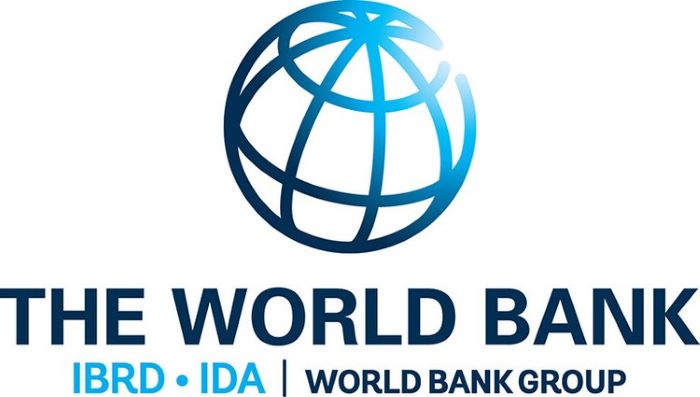Finance
South Africa: Integrating Development And Climate Goals Requires a Transition That Is Low-Carbon, Climate-Resilient, and Just

South Africa can build a more inclusive, resilient, and sustainable economy while simultaneously responding to climate change, says the World Bank’s Country Climate and Development Report (CCDR) launched with South Africa’s Presidential Climate Commission. The report highlights key policies and investments needed to achieve South Africa’s climate goals through a “triple transition” that is low-carbon, climate-resilient and just.
By implementing a low-carbon transition that aims to significantly lower emissions of greenhouse gases, South Africa can harness investments in new technologies to help resolve the protracted energy crisis. Low-carbon growth trajectory will also help strengthen country’s competitiveness, and reduce local air, water, and soil pollution that negatively impacts people, the environment, labor productivity, and food and water security.
“Renewables are among the cheapest and quicker solutions to increase electricity supply and reduce the strain on existing generation capacity. Adding more power to the grid is needed to address the chronic deficit of power generation that leads to rolling blackouts, harming productivity and economic growth,” says Marie-Francoise Marie-Nelly, World Bank’s Country Director for South Africa.
Second, achieving a climate-resilient transition will be essential to mitigating the impact of climate change on South Africa’s agriculture, cities, infrastructure, and people. Increasing climate shocks such as droughts, floods, and heatwaves are especially disruptive in coastal cities, poor agricultural provinces, and the underdeveloped peri-urban areas of the main metropolitan centers—which are home to the majority of the country’s people and the location of most of its economic activity. Road transport is relatively resilient but some provincial and rural areas will require attention. Priority should be given to investments that will not only increase resilience but also lower greenhouse gas emissions, such as investments in irrigation, agronomic practices, sustainable land management, and ecosystem restoration.
Third, supporting a just transition will be essential given that poor people are both more exposed to climate risks and less able to cope with them. The CCDR estimates that for each job eliminated in the shift to a low-carbon economy, two to three jobs could be created between 2022 and 2050. The challenge is that these new jobs will not necessarily emerge in the same timeframe, nor in the same sectors and locations, requiring joint public-private interventions to develop new skills within the workforce and facilitate movements across the labor market. By strengthening social assistance, labor market intermediation, and reskilling and upskilling programs, South Africa can better support workers during the transition. More support is also needed for micro-, small, and medium enterprises and for self-employed businesses (in both the formal and informal sectors). A holistic approach is required immediately in Mpumalanga, the province most affected by the closure of coal mines and coal-fired power plants.
Achieving these three transitions will require substantial external financing and a combination of structural reforms, including a more flexible labor market, and improvements in fiscal and financial policies. According to the CCDR estimates the three transitions could cost around R8.5 trillion (about $500 billion in net present value) between 2022 and 2050, of which R2.4 trillion ($140 billion) would be needed before 2030. Large concessional inflows and grants from the international community are needed to assist South Africa to transform its economy and lower greenhouse gas emissions. The country also needs a better regulatory framework for private capital.
“Private financing will have an important role to play, including through reforms in the domestic financial market and in the private-public partnership framework,” says Amadou Labara, IFC Country Manager for South Africa.
“As we work toward implementing our ambitious climate objectives, the difficult question remains how we uplift people and communities in the transition to a low emissions economy and ensure that the poorest and most vulnerable are not left behind as we resolve the tripartite challenges of inequality, poverty, and unemployment,” says Dr. Crispian Olver, Executive Director of the Presidential Climate Commission. “This report calls upon all of us to spur change, and build solid social compact, building-in just transition principles and practices into climate policy and planning. The findings are an important contribution and an early quantification of the investment costs in building climate resilience and implementing measures to mitigate the risks we face.”
About Country Climate and Development Reports (CCDRs)
The World Bank Group’s Country Climate and Development Reports (CCDRs) are new core diagnostic reports that integrate climate change and development considerations. They will help countries prioritize the most impactful actions that can reduce greenhouse gas (GHG) emissions and boost adaptation, while delivering on broader development goals. CCDRs build on data and rigorous research and identify main pathways to reduce GHG emissions and climate vulnerabilities, including the costs and challenges as well as benefits and opportunities from doing so. The reports suggest concrete, priority actions to support the low-carbon, resilient transition. As public documents, CCDRs aim to inform governments, citizens, the private sector and development partners and enable engagements with the development and climate agenda. CCDRs will feed into other core Bank Group diagnostics, country engagements and operations, and help attract funding and direct financing for high-impact climate action.
Source – The World Bank
-
Auto2 years ago
Honda Marine Debuts All-New BF350 Outboard Company’s First V8 Motor Available Commercially, Flagship Model Offers Premium Power and Unparalleled Performance for Extraordinary Boating Experiences
-
Auto2 years ago
New Features Further Increase Desirability Of Bentayga Range
-
Technology2 years ago
Oracle Partners with TELMEX-Triara to Become the Only Hyperscaler with Two Cloud Regions in Mexico
-
Auto2 years ago
Honda and Acura Electric Vehicles Will Have Access to Largest EV Charging Networks in North America Aided by New Agreements with EVgo and Electrify America
-
Lifestyle2 years ago
2023 Nike World Basketball Festival Brings the Best of Basketball Style, Culture and Community